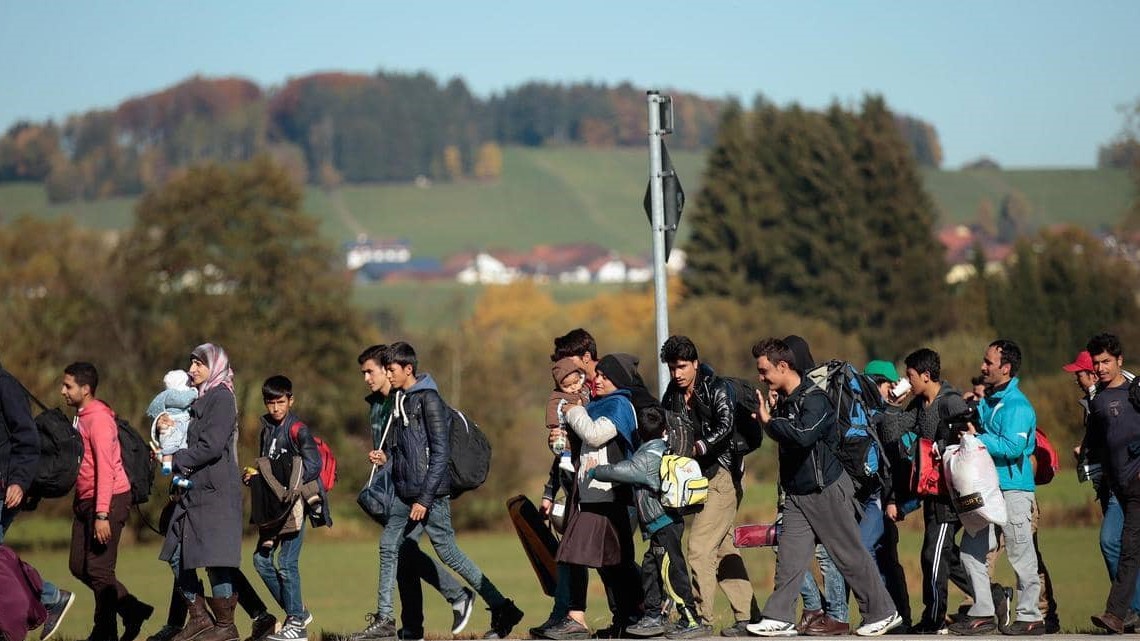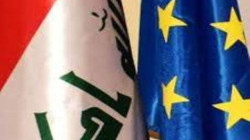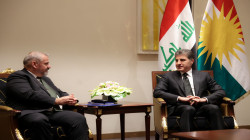EU visa sanctions improved Iraqi migrant deportation

Shafaq News/ Iraq and The Gambia have both been targeted with EU visa sanctions due to non-cooperation on deportations, according to (StateWatch) civil rights organization report issued on Wednesday.
The report said that the two countries improved their handling of migrant deportation files after their previous non-cooperation. It also said that the measures or their threat may have made them more willing to accept deportation flights from the EU.
The instrument was first introduced in 2019, and was first applied to The Gambia in 2021. Now member states are discussing the way ahead for the visa sanctions regime, which may see more threats levelled at third countries deemed insufficiently cooperative with EU deportations.
However, Gambian activists said the country’s small size made it a target for new European policies. They felt Gambia was unfairly singled out, as it had allowed many deportations per capita despite the challenges of deportation.
Notably, that visa applications were already hard before the EU sanctions, it requires a lot of paperwork and travel costs to Senegal, and scarce appointments. The EU lifted the higher visa fee on 16 January, after seeing “substantial and sustained improvement” in Gambia’s cooperation on deportations. Charter flights have flown regularly to the country in the last year.
While this may make an application for a Schengen visa cheaper, it is unlikely to make visas any more accessible – in 2022 The Gambia faced the highest visa rejection rate of any country featuring in the Commission’s annual cooperation report, at 57%.
Lamin Mokendeh Darboe, former director of the Gambian National Youth Council, noted that the number of Gambian citizens able to travel to the EU was restricted even before sanctions hit. “The reality is not so many people were getting visas anyway,” he said. “This is why people take irregular channels to travel, there are limited alternatives”.
The EU Council Presidency released a discussion paper argues that “after several years of experimentation, it is now a good time to take stock of how the Article 25a mechanism has been applied and its actual consequences on readmission cooperation with third countries” and identify “possible improvements”.
While the EU’s stance towards The Gambia has yielded some of the desired results, the paper claims that Iraq is a bigger success story – in July 2021 the EU threatened visa sanctions, and although they were never implemented it appears they may have contributed to changing the country’s practices to meet the EU’s demands, with the number of deportations to Baghdad increasing.
“Lessons learned from the Iraqi case have shown that setting a deadline against which to evaluate whether satisfactory progress in the readmission cooperation has been made, can bear fruits,” says the EU Council Presidency’s discussion paper.
“Following this approach, in case by the end of the set deadline – which has to be clearly communicated to the concerned third country – no significant and concrete progress is observed, the Council then proceeds to the adoption of the restrictive visa measures.”
Sanctions have also been formally proposed against Bangladesh, Senegal, and, most recently, Ethiopia. Yet the proposals have not, so far, been implemented. “The power of the mechanism lies in the political message conveyed by the proposals, rather than the measures themselves,” argues the Presidency’s report.
This may lead to more threats in the future, with the paper highlighting that “the tabling of proposals increases the probability of the third countries’ readiness to engage on readmission and improve their cooperation.”
It also notes the European Council’s regular calls “to use the leverages available towards the third countries that do not cooperate sufficiently on readmission”. Visa sanctions are just one of the tools used by the Council to try to force more deportation compliance—linking compliance to development aid, for instance, has also been discussed.
Noteworthy, Article 25a mechanism, an EU process, links visa policy and readmission cooperation. It suspends some visa rules for third countries that do not cooperate on readmission. The Commission assesses and reports their cooperation to the Council. It can propose a Council decision to apply the suspension mechanism. The aim is to improve readmission cooperation and return irregular migrants.





